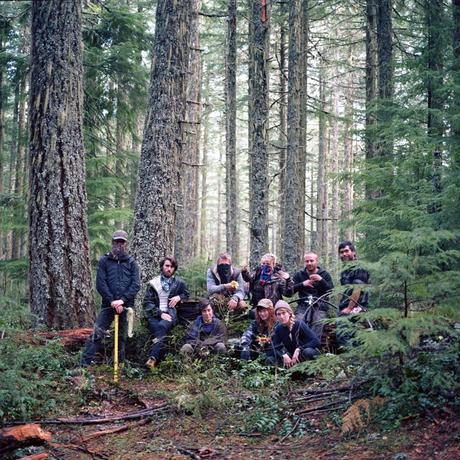
Cascadia Forest Defenders be like “Whut whut!
by Sasha / Earth First! Newswire
The White Castle treesit in Oregon continues to stoke controversy surrounding state repression of peaceful movements, as the Bureau of Land Management (BLM) and local representatives debate how to proceed with greenwashed timber sales. At stake is 187 acre clearcut in the old growth spotted owl habitat, which is being billed as a brand new type of ecologically sustainable timber sale.
According to Cascadia Forest Defenders (CFD), “A ‘Variable Retention Harvest’ (VRH), as far as we can tell, is the new code for clearcut that is proposed on Bureau of Land Management land in Oregon. VRH clearcuts 70% of a forest leaving the remaining 30% in little scattered patches.”
Advocates of the Variable Retention Harvest insist that the old growth have been crowding out the space for new growth to appear, so the Bureau of Land Management needs to create “artificial meadows.” Ron Wyden and Peter Defazio are sponsoring a bill in federal legislature that would privatize Oregon and California lands, currently managed by the BLM, in checkerboard fashion, using this ecological perspective as a reason to clearcut older areas of forest.
Activists have pointed to a recent study explaining the ecological vitality of old growth as evidence that the Wyden and Defazio approach lacks scientific credibility, yet some Oregon lawmakers insist that protestors who are holding up the timber sale by treesitting ought to be prosecuted.
According to a statement made last week by State Rep. Tim Freeman, R-Roseburg, “The fact that you have, and I will call them terrorists, going out and stopping a public process and timber operations, I think it should be a crime.”
The organization responsible for the treesit, CFD has filed an appeal that the BLM is currently processing by February, so it is clear that the protestors are following public process—it is the timber company and the BLM who want to clearcut the forest before the appropriate channels have been cleared. This situation is nothing new; only a few months ago, timber companies closed in on the Jazz timber sale on Mount Hood while local biodiversity group Bark were contesting the sale in court.
By insisting that activists protesting a timber sale ought to be prosecuted, Freeman is referring to a defeated bill that almost passed the Oregon legislature last year making it a crime to peacefully and nonviolently disrupt a timber sale on state lands, and forcing protestors to pay corporations for financial damages caused by lost profits.
Because the White Castle timber sale is on O&C land, not state land, Freeman and his gang are calling for a federal bill to match a local bill that would prosecute forest defenders. The Scott Timber Co. has leased the land at White Castle for over $1.3 million, and protestors have held them at bay by blocking access to a logging road since June.
Since the Sheriff does not have jurisdiction to evict the treesit, and the BLM lacks the resources, the stalemate continues.
This article is part of a larger report called “What’s Behind the Housing Booms,” published at Counterpunch.org

